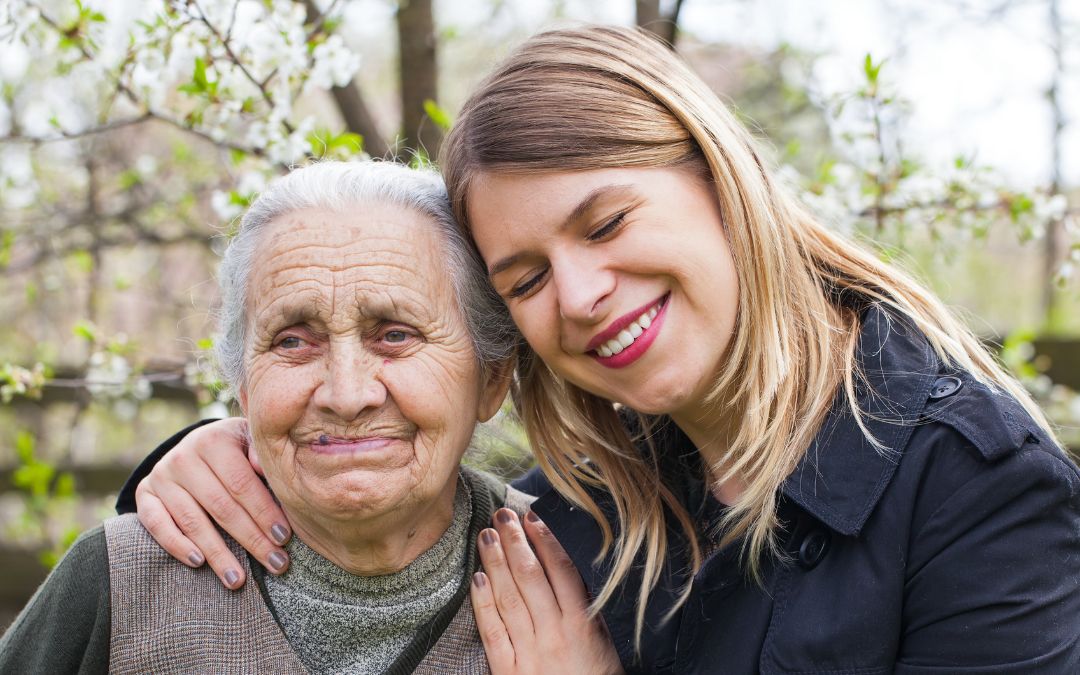With approximately 43.5 million people providing unpaid care in the last 12 months, caregiver burnout is becoming a more common occurrence. Taking care of a loved one can be a time-consuming experience with little to no downtime. This tends to result in caregivers putting their loved one’s needs ahead of their own. If you or someone you know is a caregiver, it’s important for their mental and physical health to monitor overall wellbeing. Make sure to know when it’s time to reach out for assistance.
Below we discuss the signs and causes of caregiver burnout, as well as available resources and support.
Burn out or exhaustion?
How do you know if you’re burnt out or just exhausted? The symptoms are similar, with some important distinctions. According to the Cleveland Clinic, burnout is characterized as mental, physical, and emotional exhaustion. Caregivers experiencing burnout may also suffer from anxiety, depression and even panic attacks.
The signs and symptoms can vary widely, but generally, be on the lookout for any of the following:
- Trouble sleeping
- Binge eating or drinking
- Trouble concentrating
- Withdrawl from friends and family
- Frequent illnesses
- Mood swings
The Root Cause of Burnout
The reasons behind caregiver burnout are as widely varied as the symptoms. However, there are a few that stand out above the rest. Make sure you understand the following triggers when it comes to mitigating the negative effects of caregiver burnout.
Confusing Roles
Whether you’ve been thrust into the role of caregiver for a partner who was always your equal, or an aging parent, this can create a sense of inner turmoil. Transitioning into the role of decision-maker and caregiver can bring up feelings of frustration, sadness or helplessness.
Unreasonable Expectations
Some caregivers expect their effort and actions will improve their loved ones’ health or general mood. However, they get let down when they find out that their role may not result in a positive change for their loved one. Depending on the health issues for the person receiving the care, it’s often a downward journey.
Imbalance in Priorities
Many caregivers lose balance when taking on caring, not considering what is practical given their lifestyle. When a person steps into the role of caregiver and gives up all other “roles” in their life, there’s no balance. Alternatively, many people feel like they can do it all, and keep their jobs and personal lives the same while caring for another. Which isn’t always true.
If you find you’re starting to feel these symptoms, it’s important to reach out for help. Talk to your doctor or another professional that can help guide you.
Finding Support
Support groups are an invaluable tool for balancing physical and emotional health while doing the important work of caregiving. Depending on a caregiver’s schedule and personality, there are many ways to find support. Online support groups are available to those that prefer to connect digitally. These have the added benefit of being able to access at any time and not require that you get a respite care provider to “meet up.”
To find an online support group, check out this extensive list from Care.com. Some of the most popular options are Memory People, Dementia Caregivers Support Group and Alzheimer’s and Dementia Caregiver Support.
You can search for local, in-person support groups through organizations like ElderCare Locator, the Family Caregiver Alliance, and the Alzheimer’s Association. In-person groups have the benefit of being specific to local resources. Meeting people with shared experiences at in-person groups can also lead to rich, life-long friendships.
Recognize and Remedy Caregiver Burnout
Caregiving is a challenging and emotionally complex job, one that many take on without the right resources to ensure their own health doesn’t falter. If you or someone in your life is a caregiver, make sure to watch for signs of burnout. Caregivers should not push themselves, nor should they feel ashamed to ask for help and support. Simply talking to people in the same situation and an afternoon off can do a world of difference.
At Vineyard Henderson, we host caregiver support groups each month, refer to our news page for a list of events.

